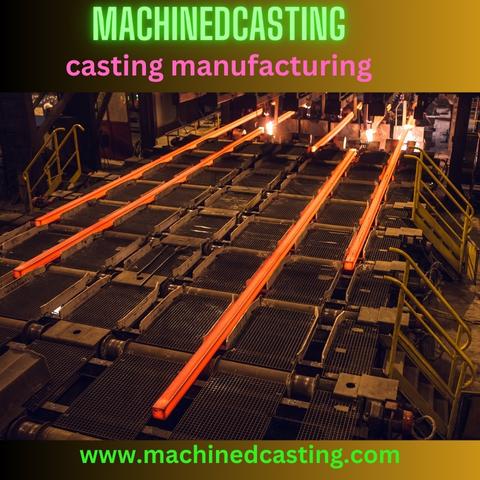Casting manufacturing is a crucial process across various industries, encompassing the creation of intricate components used in everything from automotive to aerospace applications. To stay competitive in today's market, manufacturers must embrace innovative techniques that enhance efficiency, accuracy, and sustainability. This guide explores some of the latest advancements in casting manufacturing and provides insights into implementing these techniques effectively.
-
Advanced Simulation Software: One of the most significant advancements in casting manufacturing is the development of advanced simulation software. These tools enable manufacturers to simulate the entire casting process virtually, predicting potential defects, optimizing designs, and refining manufacturing parameters before physical production begins. By leveraging simulation software, manufacturers can significantly reduce trial-and-error iterations, minimize material waste, and improve overall product quality.
-
Additive Manufacturing Integration: Integrating additive manufacturing, such as 3D printing, with traditional casting processes opens up new possibilities for design flexibility and complexity. By utilizing additive manufacturing for producing intricate molds or patterns, manufacturers can streamline the casting process, reduce lead times, and achieve geometries that were previously unattainable. This integration also facilitates rapid prototyping and iterative design improvements, accelerating the product development cycle.
-
Smart Foundry Technologies: The adoption of smart technologies within foundries enhances automation, data analytics, and process optimization. IoT-enabled sensors can monitor crucial parameters such as temperature, pressure, and humidity in real-time, allowing for proactive maintenance and optimization of casting processes. Furthermore, machine learning algorithms can analyze vast amounts of data to identify patterns, optimize process parameters, and predict potential defects, leading to increased productivity and reduced downtime.
-
Sustainable Casting Practices: In response to growing environmental concerns, there's a rising emphasis on sustainable casting practices. Manufacturers are exploring alternative materials, such as recycled alloys or bio-based resins, to reduce the environmental footprint of casting processes. Additionally, optimizing energy consumption, implementing closed-loop systems for water usage, and minimizing emissions through advanced filtration systems are becoming standard practices in environmentally conscious foundries.
-
Robotics and Automation: Robotics and automation play a pivotal role in enhancing efficiency and precision in casting manufacturing. Automated systems can handle repetitive tasks such as mold handling, pouring, and finishing, reducing labor costs and improving workplace safety. Collaborative robots, equipped with advanced vision systems, can perform intricate tasks with human-like dexterity, further increasing productivity and quality consistency.
-
Continuous Improvement Culture: Embracing a culture of continuous improvement is essential for staying ahead in casting manufacturing. Encouraging feedback from employees, fostering innovation, and investing in ongoing training and development programs are key aspects of this culture. By empowering employees to contribute ideas for process optimization and problem-solving, manufacturers can drive innovation and adapt to evolving market demands effectively.
Conclusion: Innovative techniques in casting manufacturing are reshaping the industry, offering new opportunities for efficiency, quality, and sustainability. By leveraging advanced simulation software, integrating additive manufacturing, embracing smart foundry technologies, adopting sustainable practices, implementing robotics and automation, and fostering a culture of continuous improvement, manufacturers can stay competitive in an ever-changing market landscape. By embracing these advancements, manufacturers can unlock new levels of efficiency, precision, and sustainability in casting manufacturing.


No comments yet